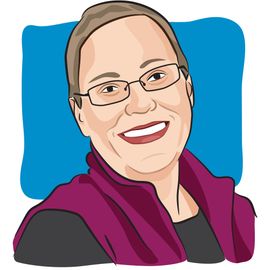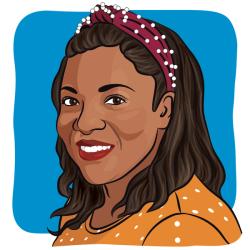- About
- Advertise / Support
- Contact
- CancerNetwork.com
- TargetedOnc.com
- OncLive.com
- OncNursingNews.com
- Terms & Conditions
- Privacy
- Do Not Sell My Information
© 2024 MJH Life Sciences™ and CURE - Oncology & Cancer News for Patients & Caregivers. All rights reserved.
Being A Friend

Martha lives in Illinois and was diagnosed with metastatic breast cancer in January 2015. She has a husband and three children, ranging in age from 12 to 18, a dog and a lizard.
The power of friendship within the world of metastatic cancer has hit home for this survivor.
In the beginning, friends and acquaintances came out of the woodwork. They showed up on my doorstep with knitted warm things and food my family would eat, they brought books and stayed for a chat. They could see my missing hair and easily understand that I was ill.
Some of these people have stuck around to try to understand my life as a stage 4 cancer patient diagnosed at just-turned-50 — too old to be called young but young enough to be conspicuous at the cancer center. These people who stuck to me, who haven't been afraid to bring up the "c" word or to talk with me about hope and troubles in their own lives, are my friends.
They loan me chairs when I have too many people over to dinner and they pester me about 5Ks for my kids to run, they call me when they're in town, they read the things I write and sometimes they tell me when to re-think what I've said. They aren't afraid to be the real friends that every person, cancer or not, needs. In return, I try to be the same for them.
Being a good friend isn't always easy. It can be especially difficult to be a good friend to someone with stage 4 cancer. We get sick, we get tired, we need help, we die. And we do these things far more than most friends.
The power of friendship has been in full view for several months in my own life. In late 2018, my own dear friend, Valerie Roybal, who'd lived with metastatic breast cancer for nearly eight years, died at the age of 49. She was an accomplished artist in the midst of putting together work for a show about living with incurable disease. She left behind mysterious and beautiful collages, her own life-with-cancer written words, and a funded grant through 516 Arts that included plans for a show and an exhibition book.
During the summer before her death, Valerie asked me to contribute an essay for the project. She died before I saw the artwork and she died before she saw my essay. During her final months, I think we talked about the project, called For-Get-Me-Not, just one or two times. Instead, we talked about cancer, dying, and quite a lot about the friends she loved.
Two of those friends, Sheri Crider and Heidi Pollard, are largely responsible for the show at Levy Gallery in Albuquerque and the exhibition book. They added this work to their already busy lives as artists, business owners and caregivers. From my perspective, it was a gift of absolute love and respect for their friend.
Their devotion to the project Valerie wasn't able to finish is humbling. In a world where it can feel like the hundreds of thousands who die from breast cancer each year (42,000 in the US alone, according to Cancer.Net) are quickly forgotten as still more die, this act of friendship continues to take my breath away.
A good friend is everything to someone who is lost and afraid, bringing comfort and reassurance about the value of life. If I must wish for only one thing, it's that we all have such people in our lives. Thank you to my own friends, in real life and through social media, and to people like Valerie's friends, who don't forget.
You can look at pieces from For-Get-Me-Not through June 7 by going here. All proceeds from the art and the exhibition book are going toward metastatic programming at Living Beyond Breast Cancer, which is an organization through which Valerie found support and how she and I met.
Related Content:



